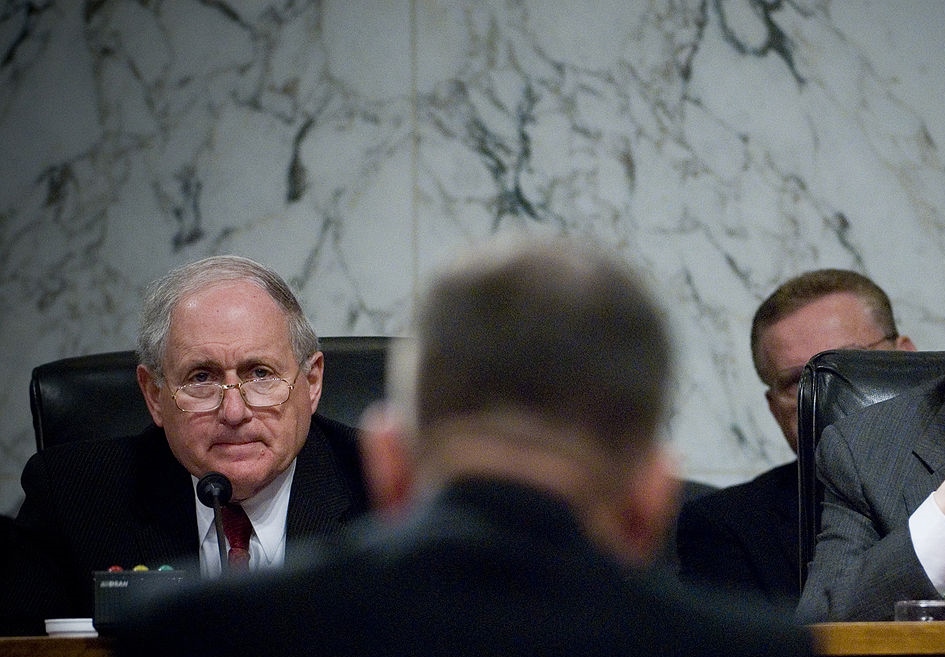It’s been more than two decades since the Tailhook scandal exposed the crisis of sexual assault in the military. But despite endless vows of “Zero Tolerance,” the realities of military culture and an obsolete disciplinary system continue to allow rapists to flourish with little threat of ever facing consequences.
The Pentagon recently released its annual internal report on sexual assault, and the findings are beyond depressing.
The report estimates about 26,000 service members were sexually assaulted last year, but nearly 90 percent of those cases went unreported. It also found more than 60 percent of victims who did report assaults faced some form of retaliation. And it’s worth noting that men are not immune, making up about half of reported victims.
| No institution that big is ever capable of self-governance when it comes to delicate issues like this. It hasn’t worked for the Catholic Church, and it hasn’t worked for the U.S. military. |
But women face a one in five chance of being sexually assaulted at some point during their military careers, and they’re more likely to be assaulted by one of their colleagues than killed by enemy fire. This is a problem both civilian and military leadership have only addressed with superficial reforms, while desperately clinging to a status quo that is impractical, antiquated and ineffective.
The command structure in place to deal with sexual assaults has proven beyond any doubt to be a failure. Reporting a crime like rape is excruciatingly difficult for victims in any context, but the intimidation associated with the chain of command and the justifiable fear of retaliation obviously exacerbates the problem. And even when sexual assaults are reported, it’s clear the military system is incapable of responding appropriately. Last year, fewer than 10 percent of cases that were investigated ended in conviction, and even a conviction is no guarantee of justice, because a commander can easily overrule a jury with no explanation and essentially issue a pardon.
Sexual assault is unique in the military in that other crimes are typically dealt with in a more straightforward fashion. Crimes like theft and drunk-driving, for example, result in dismissal or jail time. But sex crimes usually go unreported or unpunished.
In response to the Pentagon report, New York Senator Kirsten Gillibrand, who sits on the Armed Services Committee, has proposed changing the system so these types of crimes are taken outside the chain of command and addressed by an independent military court. This is not a radical idea. But the military brass vehemently opposes this type of restructuring, and the Democratic chairman of the committee, Carl Levin (pictured), caved last week to pressure from the Pentagon and removed the Gillibrand proposal from the bill, preserving the chain of command. The Senate will still implement other changes, but it’s doubtful they’ll make much of a difference without Gillibrand’s language in the final package. Gillibrand blasted the move and criticized Levin for allowing military leadership to define the debate, instead of the victims. She’s right.
Too often we seem to forget that we have a civilian leadership in this country, and we allow the military to call the shots. Our military deserves respect and gratitude. We’ve been at war for more than a decade, and veterans often come home to less than welcoming conditions, grim employment prospects and inadequate medical and mental health treatment.
But the military as an institution is treated with almost god-like deference in which legitimate criticism is construed as unpatriotic, and leaders like Levin are cowed into doing what Pentagon brass want, not what’s in the best interest of the rank and file.
No institution that big is ever capable of self-governance when it comes to delicate issues like this. It hasn’t worked for the Catholic Church, and it hasn’t worked for the military. Even the officer who headed the Air Force program tasked with preventing sexual assault was arrested for sexual assault! The system is broken.
And it’s not just the technicalities of military law that need to change; there also needs to be a shift in attitude. The dominance of the Old Guard over voices like Gillibrand’s will never move us forward. And when a conservative columnist for the Wall Street Journal like James Taranto is openly dismissive of rape victims, blames them for inviting assault, and then warns that this whole discussion amounts to a war on male sexuality, he should be called out for what he is: a misogynist and a dinosaur.
Still, no matter how much reform there is, many victims will understandably be reluctant to come forward when they’re assaulted. That doesn’t mean everything shouldn’t be done to make the process of reporting these crimes as supportive as possible. The current system will ensure the majority of cases remain unreported.
Some say that the modest actions of the Senate are a step in the right direction. But victims of sexual assault deserve more than just incremental progress; they deserve an immediate solution. Too bad Gillibrand’s colleagues don’t share that sentiment.
Doug Daniels is a former staff reporter for Campaigns & Elections. He is the author of the forthcoming memoirSifting Through the Wreckage.




0 Comments